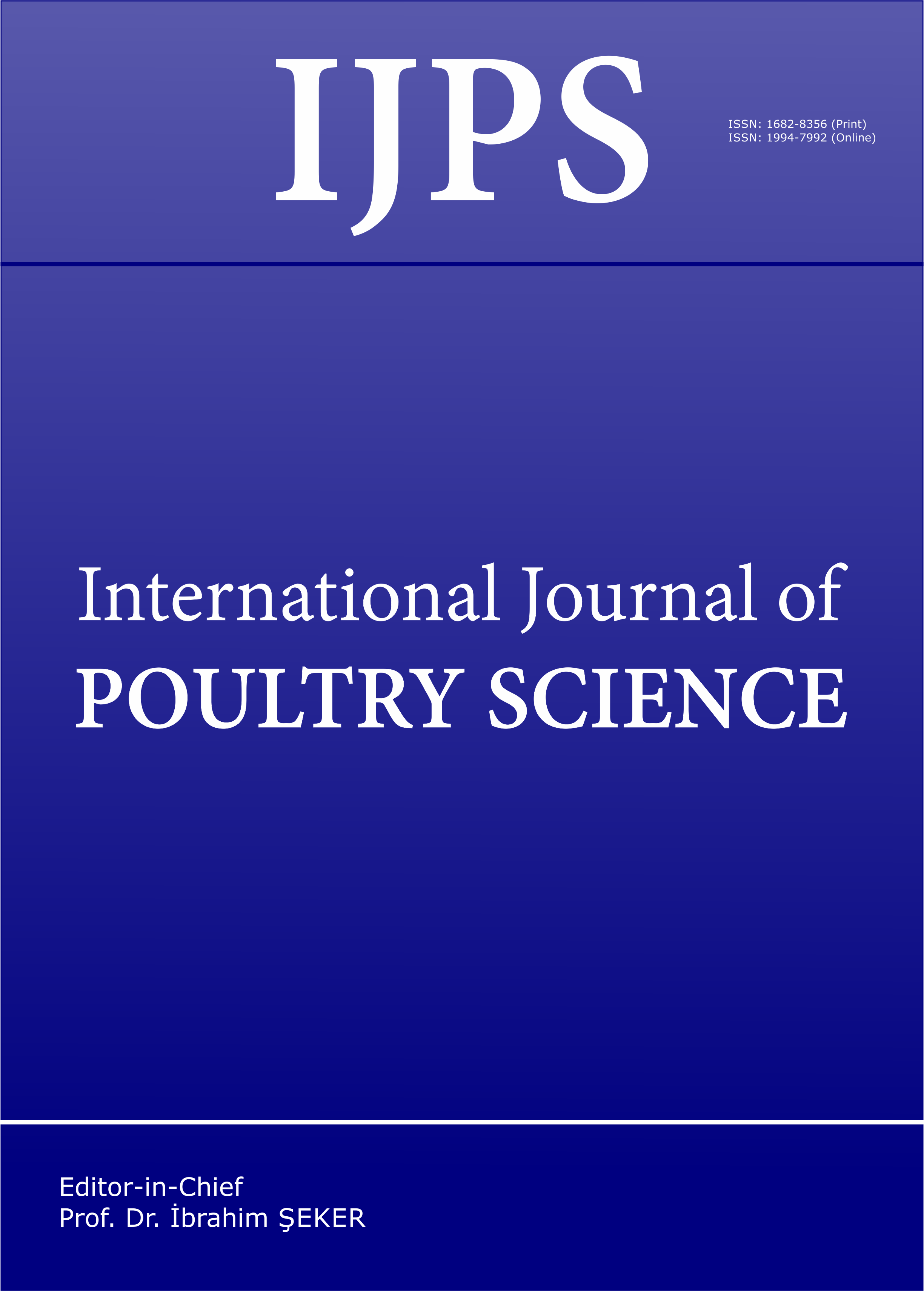Multi-Enzyme Supplementation to Peak Producing Hens Fed Corn-Soybean Meal Based Diets
DOI:
https://doi.org/10.3923/ijps.2006.374.380Keywords:
Corn-soybean meal based diet, egg quality, laying performance, metabolic profile, multi-enzymeAbstract
This experiment was conducted to evaluate the effects of multi-enzyme supplementation on laying performance, metabolic profile and egg quality of peak producing hens. Lohman layers (n = 144) were blocked according to the location of cages. After one week of the adaptation period, hens were randomly assigned to receive one of three corn-soybean meal based diets supplemented with multi-enzyme (0, 1, or 2 g/kg) from 30 to 46 weeks of age as 12 replicate cages of 4 hens. The active ingredients of the multi-enzyme supplement were fungal xylanase, fungal β-gluconase, alpha-amylase, pectinase, β-gluconase, endo- β-gluconase, pentosonase, pectinase and hemicellulase. Egg production (EP) and feed intake (FI) were measured daily and egg weight was measured fortnightly. Feed conversion ratio (FCR) was expressed as kilogram of feed consumed per kilogram of egg produced. Two eggs were collected randomly from each cage every 4 weeks to determine egg quality. Body weights (BW) were measured at the beginning and end of the experiment. Blood was also sampled at the end of the experiment to evaluate metabolic profile. The data were analyzed using ANOVA as repeated measures with time being as subplot. The multi-enzyme supplementation did not affect BW, FI and EP; decreased FI; and improved FCR. Except for serum albumin and yolk index, none of metabolic profile and egg quality parameters was affected by the dietary treatments. In conclusion, despite no changes in egg production, decreased feed intake and consequently, improved feed conversion in response to multi-enzyme supplementation could be attributed to enhanced utilization of nutrients.
Downloads
Published
Issue
Section
License
Copyright (c) 2006 Asian Network for Scientific Information

This work is licensed under a Creative Commons Attribution 4.0 International License.
This is an open access article distributed under the terms of the Creative Commons Attribution License, which permits unrestricted use, distribution and reproduction in any medium, provided the original author and source are credited.

